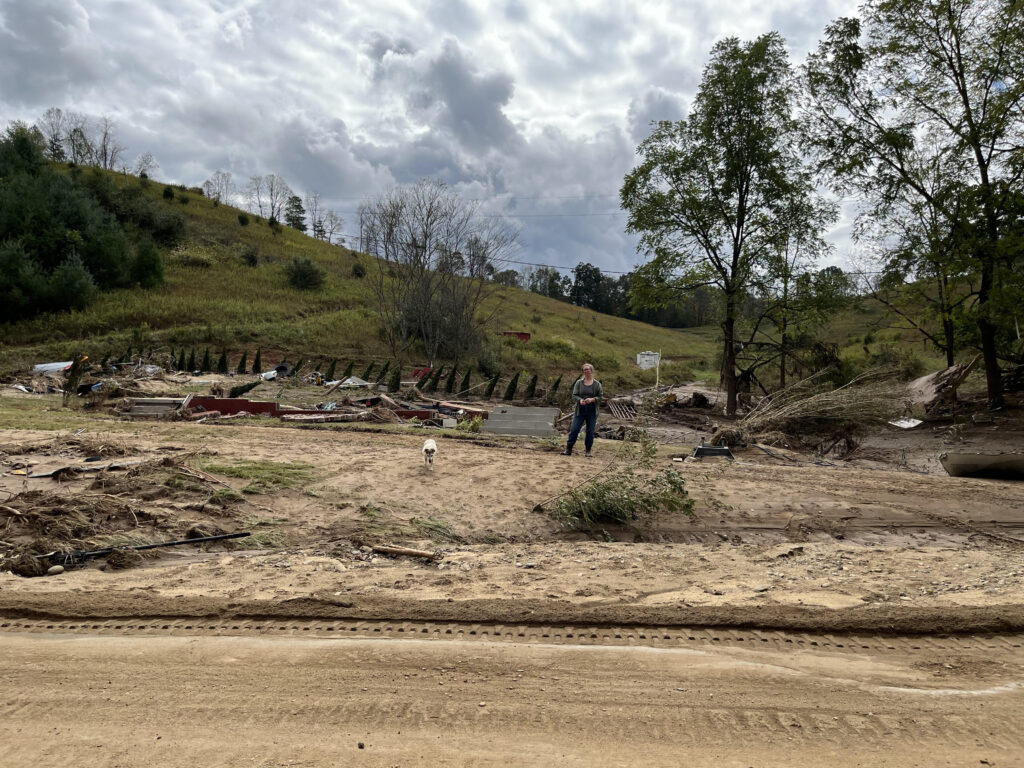
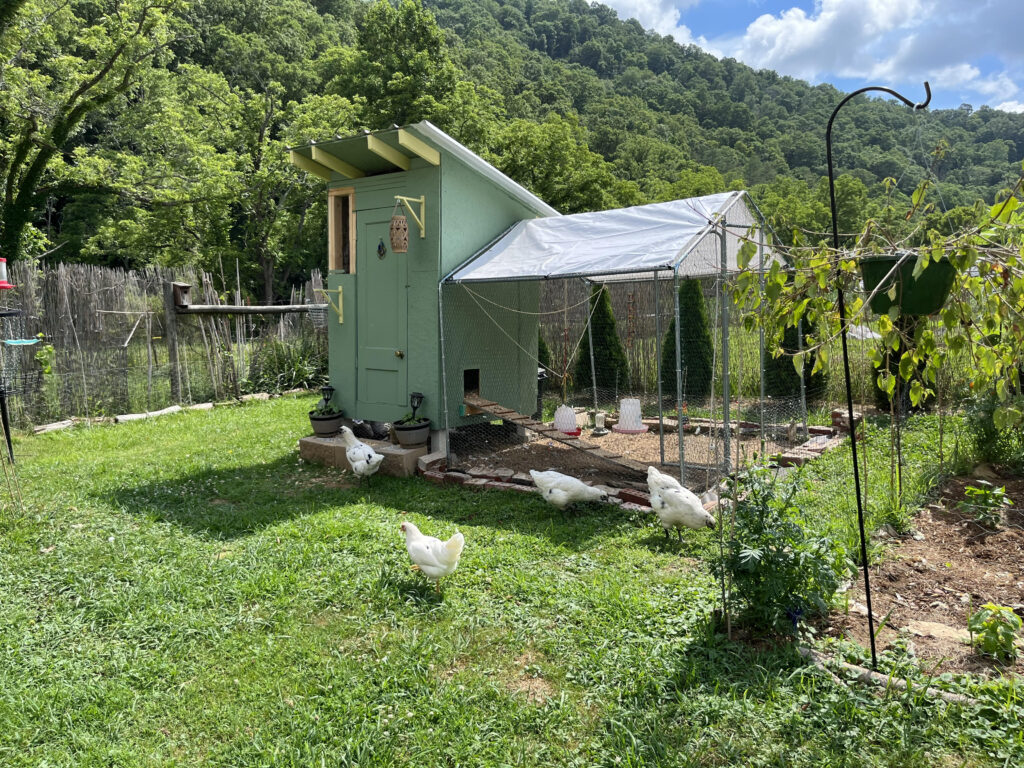

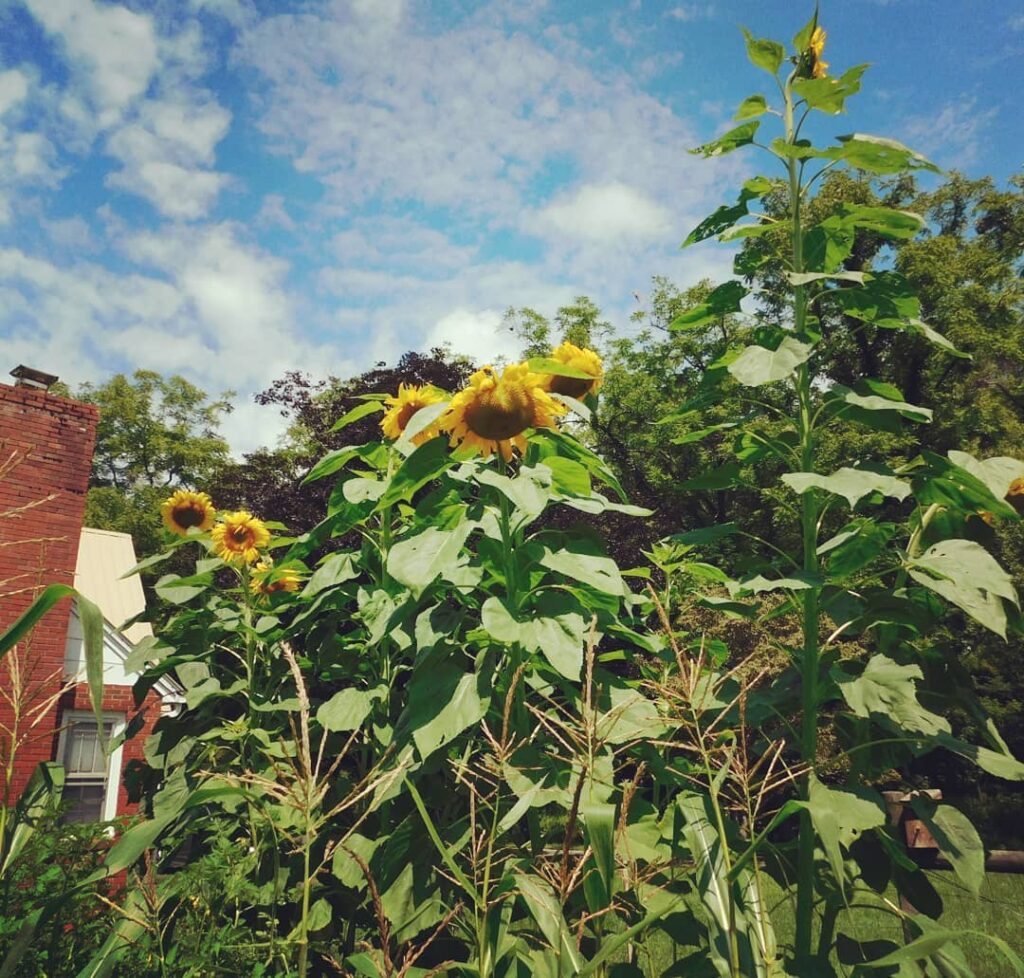
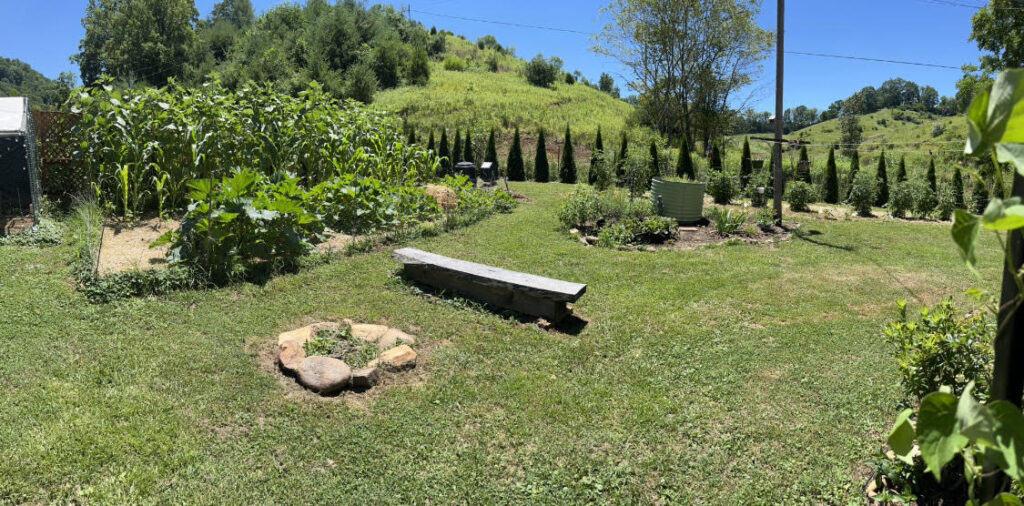
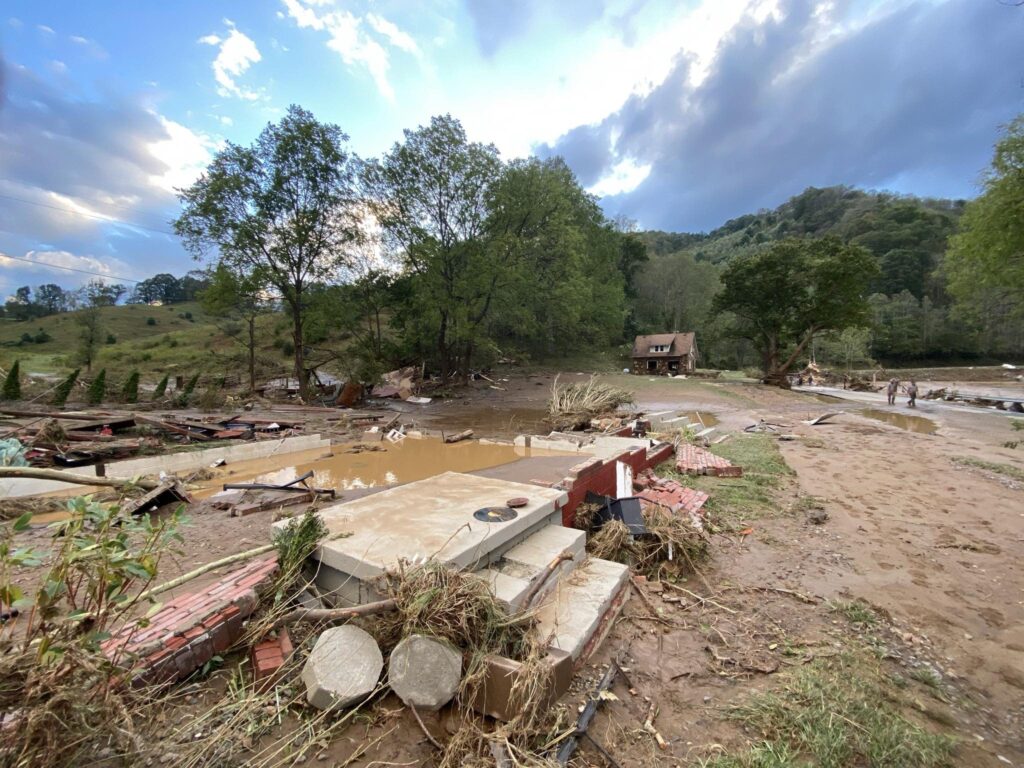
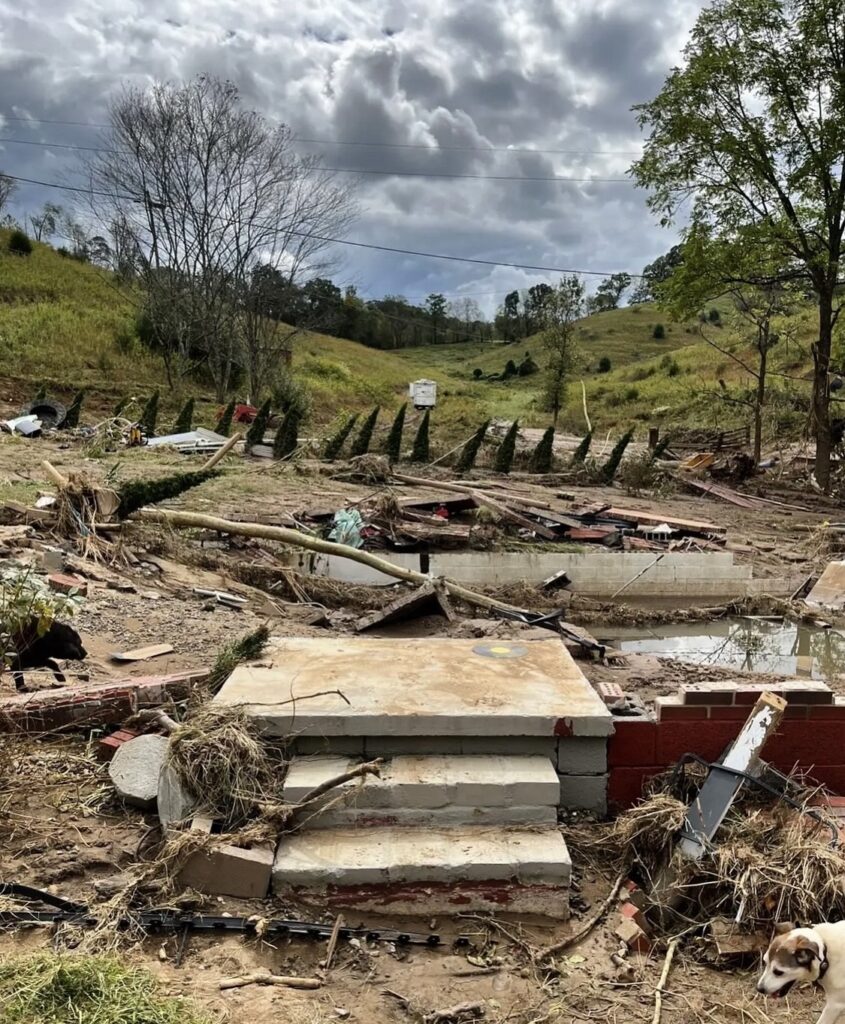
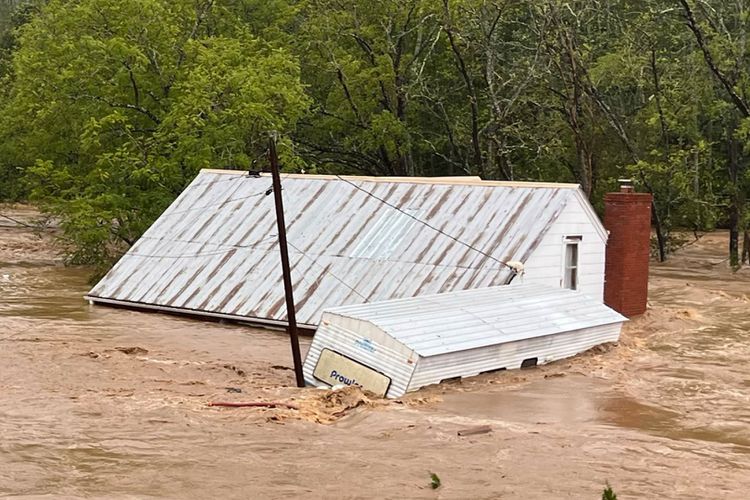
Written by Western Regional Manager, Jonathan Perry
In the early afternoon of Thursday, September 26th, Meredith Childress watched the Cane River expectantly from her home in Burnsville. It had been raining for two straight days and the river was high. Her boyfriend worked in Asheville and called her anxiously. “They’re saying that it’s going to get bad, Meredith. They’re saying that if you live near a river or creek, you should leave now.” This was before Helene had even arrived in the area.
Meredith had lived in her idyllic farmhouse for four and a half years. She had scraped together the $4,000.00 for a down payment, and in April 2020, at the beginning of the pandemic, she had secured a loan from Fannie Mae through their first-time buyer program. When she signed the closing documents, she wore a mask, and the paperwork was slid across a legal conference table from 6 feet away. Built in 1940 her 3-bedroom, 1-bathroom farmhouse was in rough shape. During the ensuing stay-at-home period of the pandemic, she poured sweat equity into the home, sanding, trim work, painting, she laid a new bathroom floor, changed out all ceiling fans, lights and electrical outlets and redid the bathroom.Slowly, the house started to feel like home. She planted a garden in her backyard and let her free-range chickens run loose in the field. Sunflowers grew tall in the summer months, and by Christmas 2023, the home looked very closely to what she had originally envisioned.
By 4:00 PM on the 26th, the river was brimming, four or five feet higher than usual. Meredith’s boyfriend came back from Asheville and brought her a generator, still thinking that they would ride out the storm. She had a decision to make; the first thing to flood was going to be the low-lying culvert and driveway. Once that happened, they would be trapped. They put Meredith’s two cats and some essentials in her car and left for her mother’s rental cabin in another part of the county. The tenant in the stone house next door chose not to flee, but many residents of the RV commune down the street did leave. The elder operator of the commune stayed, along with her son and one or two animals.
Throughout Thursday night and into Friday morning, Meredith monitored the cameras on the home property from the safety of the rental cabin. She knew it was bad once she saw water creeping toward the home, but once the power went out, she longer knew.
Years earlier, Meredith worked part time at the Yancey County Library. From her own research she knew the history of flooding in the immediate area. For context, the 1916 flood brought 15-20 inches of rain over a six-day period. Generally considered a 1,000-year flood, it was the benchmark for flooding in the area. The 1977 flood brought 11 inches in two days. That storm reached the bottom of Meredith’s house. Locals called it a 100-year flood. Hurricane Helene brought a total of 31 inches of rain in four days. Some have called it a 100,000-year flood. Most that I encountered in the mountains used the term “biblical”.
After the storm left the area, Meredith waited to return. Between the trees down and roads missing, it was impossible to drive back to the property. Normally, it would be a 12-minute drive from her mom’s rental. It took her 4 days to get back. On the highway, they were dumbfounded. “It looks like a nuclear bomb went off”, she kept telling her boyfriend. Whole chunks of the road were missing. Some portions of the asphalt were in the river. Cars were in trees. They had just turned slowly onto the road near their home when saw their neighbor driving in the opposite direction and flagged him down. Billy Ray was frazzled, a distant look in his eyes. “Meredith, your house is gone.”
When they arrived back, all they saw was part of their foundation and steps. A record lay on the topmost step. Some personal belongings were here or there. Everything else was gone. Meredith just stood there looking. It was all gone.
In the following days, she has learned what had happened to her home and community. The river rose until only her roof was above the water. When the RV commune flooded, one RV floated to their home. The operator of the commune took a picture, which has since gone viral. It’s not clear if the RV tore it down, or if the neighbors dump truck floated down and finished the job. The tenant in the stone house next door had to be rescued by emergency management during the flooding.
When I met Meredith, it was about a week and half after the destruction. She was the kindest client, but clearly still in shock from the event. She had received some money from FEMA but no longer had a home nor had the desire to rebuild. I asked her about flood insurance. She had made ends meet but could not afford the $800.00 amount required. Her monthly mortgage payment was $682.00. There was no way she could pay that amount for insurance. We talked a lot about financial planning, advised about flood insurance and FEMA regulations, but like so many in the early days of Helene relief, people just wanted to talk, to be heard.
Meredith is now on the hook for the remaining $45,000 of the mortgage. With the assistance of Alicia Edwards and the Disaster Relief Team, they are negotiating with the mortgage company for either a short payoff or some other means of getting out of the mortgage.
The thing that strikes me about Meredith, a virtue that we see over and over in the folks in the mountains, is her insistence on positivity and gratitude. In all our conversations, in all our meetings, she has yet to complain. She has lost nearly every worldly possession, but she counts herself to be lucky. She told me that she was one of the fortunate ones. “It’s only a house,” she told me. “We didn’t have anyone die in our neighborhood.”
